With new technologies revolutionizing data collection, wildlife researchers are becoming increasingly able to collect data at much higher volumes than ever before. Now we are facing the challenges of putting this information to use, bringing the science of big data into the conservation arena. With the help of machine learning tools, this area holds immense potential for conservation practices. The applications range from online trafficking alerts to species-specific early warning systems to efficient movement and biodiversity monitoring and beyond.
However, the process of building effective machine learning tools depends upon large amounts of standardized training data, and conservationists currently lack an established system for standardization. How to best develop such a system and incentivize data sharing are questions at the forefront of this work. There are currently multiple AI-based conservation initiatives, including Wildlife Insights and WildBook, that are pioneering applications on this front.
This group is the perfect place to ask all your AI-related questions, no matter your skill level or previous familiarity! You'll find resources, meet other members with similar questions and experts who can answer them, and engage in exciting collaborative opportunities together.
Just getting started with AI in conservation? Check out our introduction tutorial, How Do I Train My First Machine Learning Model? with Daniel Situnayake, and our Virtual Meetup on Big Data. If you're coming from the more technical side of AI/ML, Sara Beery runs an AI for Conservation slack channel that might be of interest. Message her for an invite.
Header Image: Dr Claire Burke / @CBurkeSci

Explore the Basics: AI
Understanding the possibilities for incorporating new technology into your work can feel overwhelming. With so many tools available, so many resources to keep up with, and so many innovative projects happening around the world and in our community, it's easy to lose sight of how and why these new technologies matter, and how they can be practically applied to your projects.
Machine learning has huge potential in conservation tech, and its applications are growing every day! But the tradeoff of that potential is a big learning curve - or so it seems to those starting out with this powerful tool!
To help you explore the potential of AI (and prepare for some of our upcoming AI-themed events!), we've compiled simple, key resources, conversations, and videos to highlight the possibilities:
Three Resources for Beginners:
- Everything I know about Machine Learning and Camera Traps, Dan Morris | Resource library, camera traps, machine learning
- Using Computer Vision to Protect Endangered Species, Kasim Rafiq | Machine learning, data analysis, big cats
- Resource: WildID | WildID
Three Forum Threads for Beginners:
- I made an open-source tool to help you sort camera trap images | Petar Gyurov, Camera Traps
- Batch / Automated Cloud Processing | Chris Nicolas, Acoustic Monitoring
- Looking for help with camera trapping for Jaguars: Software for species ID and database building | Carmina Gutierrez, AI for Conservation
Three Tutorials for Beginners:
- How do I get started using machine learning for my camera traps? | Sara Beery, Tech Tutors
- How do I train my first machine learning model? | Daniel Situnayake, Tech Tutors
- Big Data in Conservation | Dave Thau, Dan Morris, Sarah Davidson, Virtual Meetups
Want to know more about AI, or have your specific machine learning questions answered by experts in the WILDLABS community? Make sure you join the conversation in our AI for Conservation group!
No showcases have been added to this group yet.
WildTrack
Research, development and implementation of non-invasive montoring for endangered species



- 1 Resources
- 25 Discussions
- 11 Groups
- @tkswanson
- | she/her
San Diego Zoo Wildlife Alliance
Research Coordinator II for the Conservation Technology Lab at SDZWA

- 2 Resources
- 2 Discussions
- 7 Groups
- @cbreen
- | she/her
wildlife ecologist and snow scientist
- 0 Resources
- 0 Discussions
- 4 Groups
I am an enthusiastic conservationist who want to take full advantage of technology to make conservation easy.
- 0 Resources
- 0 Discussions
- 1 Groups
Software engineer working on natural resource management technology.
- 0 Resources
- 3 Discussions
- 6 Groups
- 0 Resources
- 0 Discussions
- 1 Groups
My research focuses on using Next-Generation Sequencing (NGS) to study endangered species, including carnivores, chiropterans (bats), and lizards, as well as their microbiomes.
- 1 Resources
- 4 Discussions
- 19 Groups
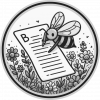

- 0 Resources
- 31 Discussions
- 4 Groups
- @rowan
- | they / them
Octophin Digital
Jack of all Trades. I've been a zoo keeper, a conservation geneticist and a web developer who specialises in conservation projects and orgs.


- 1 Resources
- 5 Discussions
- 15 Groups
- @srilekha
- | she/her/hers
AI software engineer looking to make a difference in the world
- 0 Resources
- 0 Discussions
- 2 Groups
- @Hendrik_W
- | he/him
- 0 Resources
- 0 Discussions
- 2 Groups
- 0 Resources
- 0 Discussions
- 1 Groups
This exciting news article about The Global Wetland Project's FishID platform discusses the latest improvements and developments in using deep learning to identify individual fish species underwater. In addition to...
28 July 2020
Article
In this article from BearID Project, Director and Software Developer Ed Miller walks us through using their application to identify individual bears from photographs. Ed shows us how to easily use BearID remotely in the...
21 July 2020
Put your acoustic monitoring skills to the test in The Cornell Lab of Ornithology's Birdsong Identification Kaggle Competition. Participants will compete to identify as many bird vocalizations as possible in in...
8 July 2020
Conservation technology largely consists of two categories: tools to monitor and study wildlife and their habitats, and solutions to mitigate or prevent negative human impacts. The fight against poaching in particular...
4 June 2020
A couple months ago, we introduced you to the Footprint Identification Technique (FIT), a non-invasive way to build an identification algorithm from both wild and captive animals by photographing footprints. Today, we'...
3 June 2020
Funding
The 2020 Hackaday Prize competition has begun! This year, Conservation X Labs has partnered with the Hackaday Prizes as one of four nonprofits seeking tech-based solutions to urgent challenges. Conservation X Labs'...
26 May 2020
Article
We're excited to welcome the WildTrack FIT group to our community! Today, we'd like to introduce you to the Footprint Identification Technique (FIT) and share how you can incorporate this tracking method into your field...
6 May 2020
Funding
Want to compete in the iWildCam 2020 competition identifying species in camera trap images to support biodiversity monitoring efforts and automatic species classification model improvements? Because the Workshop on Fine...
4 May 2020
The 2020 Arm Research Summit is accepting submissions from all research disciplines focusing on the role of technology in solving global challenges. Submissions should reflect the potential of sustainable, secure, and...
24 April 2020
Article
At the 2018 London Illegal Wildlife Trade Conference, we announced the WILDLABS Tech Hub, an accelerator programme created to support the development and scaling of groundbreaking technological solutions addressing the ...
13 April 2020
Community Announcement
Our second WILDLABS Community Call took place on April 1st to continue the discussion started by Ben Tregenna in our Data Science group, in which he suggested the idea of submitting a collaborative entry to the X-Prize...
30 March 2020
Article
At the 2018 London Illegal Wildlife Trade Conference, we announced the WILDLABS Tech Hub, an accelerator program created to support the development and scaling of groundbreaking technological solutions addressing the ...
26 March 2020
August 2025
event
September 2025
event
event
event
event
October 2025
event
event
event
December 2025
event
March 2026
October 2024
event
September 2024
event
event
17 Products
Recently updated products
| Description | Activity | Replies | Groups | Updated |
|---|---|---|---|---|
| Hi Ellie, thanks for your interest. So I have two possible explanations why the camera traps I used did not release, even though I found otter droppings directly in front of my... |
|
AI for Conservation, Animal Movement | 4 years 11 months ago | |
| Samara P. El-Haddad Wildlife Conservation Junior Specialist at Lebanon Reforestation Initiative (LRI)... |
|
AI for Conservation, Community Base | 5 years ago | |
| How neat, thanks for sharing! We'd love to hear more about your drone project once it's underway, please keep us updated on that one! |
|
AI for Conservation, Emerging Tech | 5 years 1 month ago | |
| Great talk! I thoroughly enjoyed it. Some high schoolers have done small AI projects(s) and have interest in the wildlife. What resources would you all suggest to further... |
|
AI for Conservation, Camera Traps | 5 years 1 month ago | |
| Author: Jody Tucker, U.S. Forest Service, Pacific Southwest Region Carnivore Monitoring ProgramFigures below text in order (Fig 1... |
|
AI for Conservation, Emerging Tech | 5 years 1 month ago | |
| What better way to celebrate Endangered Species Day 2020 than try a new technology to protect them? If you're planning to be out and... |
|
AI for Conservation, Emerging Tech | 5 years 3 months ago | |
| DeepForest docs are here. https://deepforest.readthedocs.io/ Welcome to have a look. My experience is that individual trees cannot be distinguished in satellite... |
|
AI for Conservation | 5 years 4 months ago | |
| Steph, thank you so much for this, this is wonderful :) Really, really apreciate you sharing this with me :) Diving into all of the wonderful resources from you, thank you so very... |
|
AI for Conservation | 5 years 4 months ago | |
| A call put out over on Twitter by Jesse Alston might be of interest here - both for conservationists and grad students. Looks like... |
|
AI for Conservation | 5 years 4 months ago | |
| This can be done, happy to help :) But I think I need to understand the situation a little bit more. Do you already have the data for training / inference? Do you have any... |
|
AI for Conservation | 5 years 4 months ago | |
| Hi there this post on Conservation X labs recently came up on designing softwarre for individual horse recognition: https://... |
|
AI for Conservation | 5 years 5 months ago | |
| Wildlife Insights launched their online platform hosting over 4 million camera trap images. They use AI to automatically classify the... |
|
AI for Conservation | 5 years 8 months ago |
SLN Webinar: Tech for wildlife: The role AI and technology can play in nature conservation
18 March 2024 9:17am
BirdWeather | PUC
27 October 2023 7:45pm
14 March 2024 10:29pm
Hi Tim, I just discovered your great little device and about to use it for the first time this weekend. Would love to be directly in touch since we are testing it out as an option to recommend to our clients :) Love that it includes Australian birds! Cheers Debbie
16 March 2024 10:47pm
Hi @timbirdweather I've now got them up and running and winding how I can provide feedback on species ID to improve the accuracy over time. It would be really powerful to have a confirmation capability when looking at the soundscape options to confirm which of the potential species it actually is or confirm it is neither to help develop the algorithms.
Also, is it possible to connect the PUC to a mobile hotspot to gather data for device that isn't close to wifi? And have it so that it can detect either wifi or hotspot when in range? Thanks!
Data Manager and Technology Coordinator, ABC Global Climate Center
15 March 2024 5:01pm
The Freshwater Sounds Archive
15 March 2024 10:32am
Free AI Camera Trap Model for European Fauna!
12 March 2024 12:33pm
Labelled Terrestrial Acoustic Datasets
16 February 2024 10:24pm
8 March 2024 11:54pm
Thanks for sharing Kim.
We're using <1 mA while processing, equating to ~9 Ah running for a year. The battery is a Tadiran TL-5920 C 3.6V Lithium, providing 8.6 Ah, plus we will a small (optional) solar panel. We also plan to implement a threshold system, in which the system is asleep until noise level crosses a certain threshold and wakes up.
The low-power MCU we are using is https://ambiq.com/apollo4/ which has a built-in low power listening capability.
9 March 2024 6:25am
<1 mA certainly sounds like a breakthrough for this kind of device. I hope you are able to report back with some real world performance information about your project @jcturn3 . Sounds very promising. Will the device run directly off the optional solar cell or will you include a capacitor since you cannot recharge the lithium thionyl chloride cell. I had trouble obtaining the Tadarian TL-5920 cells in Australia (they would send me old SL-2770s though) so I took a gamble on a couple of brands of Chinese cells (EVE and FANSO) which seemed to perform the same job without a hitch. Maybe in the USA you can get Israeli cells more easily than Chinese ones?
Message me if you think some feeding sounds, snoring, grooming and heart sounds of koalas would be any use for your model training.
9 March 2024 7:01am
Really interesting project. Interesting chip set you found. With up to around 2mb sram that’s quite a high memory for a ultra low power soc I think.
It might also be interesting while doing your research thinking about if there are any other requirements people could have for such a platform with a view towards more mass usage later. Thanks for sharing.
Here's what you missed at World Wildlife Day 2024
7 March 2024 9:02pm
15 March 2024 2:42pm
EcoAssist - Free African species identification model for 30 species!
5 March 2024 5:10pm
1 April 2024 6:04pm
Machine Learning Postdoc Position, Understory
29 February 2024 11:56pm
Engineer in novel technologies and approaches for biodiversity monitoring
26 February 2024 6:12pm
Needing help from the community: Bioacoustics survey
14 February 2024 9:46am
24 February 2024 7:23pm
Was great to chat with you Sofia and I would encourage others in the Acoustics community to help provide input for Sofia's study!
26 February 2024 8:57am
Thank you so much for your encouraging words! I'm thrilled to hear that you enjoyed our conversation, and I truly appreciate your support in spreading the word about my survey within the Acoustics community. Input from individuals like yourself is incredibly valuable to my study, and I'm eager to gather as much insight as possible. If you know of anyone else who might be interested in participating, please feel free to share the survey link with them. Once again, thank you for your support—it means a lot to me!
Best regards,
Sofia
Tools for automating image augmentation
26 January 2024 2:33pm
16 February 2024 7:42am
Hi @arky !
Thanks for your reply.
I am running into pytorch/torchvision incompatibility issues when trying to run your script.
Which versions are you using?
Best regards,
Lars
18 February 2024 11:05am
@Lars_Holst_Hansen Here is the information you requested. Also run Yolov8 in multiple remote environments without any issues. Perhaps you'll need to use a virtual environment (venv et al) or conda to remedy incompatibility issues.
$ yolo checks
Ultralytics YOLOv8.1.4 🚀 Python-3.10.12 torch-1.13.1+cu117 CUDA:0 (Quadro T2000, 3904MiB)
Setup complete ✅ (16 CPUs, 62.5 GB RAM, 465.0/467.9 GB disk)
OS Linux-6.5.0-17-generic-x86_64-with-glibc2.35
Environment Linux
Python 3.10.12
Install pip
RAM 62.54 GB
CPU Intel Core(TM) i7-10875H 2.30GHz
CUDA 11.7
matplotlib ✅ 3.5.1>=3.3.0
numpy ✅ 1.26.3>=1.22.2
opencv-python ✅ 4.7.0.72>=4.6.0
pillow ✅ 10.2.0>=7.1.2
pyyaml ✅ 6.0.1>=5.3.1
requests ✅ 2.31.0>=2.23.0
scipy ✅ 1.11.4>=1.4.1
torch ✅ 1.13.1>=1.8.0
torchvision ✅ 0.14.1>=0.9.0
tqdm ✅ 4.66.1>=4.64.0
psutil ✅ 5.9.8
py-cpuinfo ✅ 9.0.0
thop ✅ 0.1.1-2209072238>=0.1.1
pandas ✅ 1.5.3>=1.1.4
seaborn ✅ 0.12.2>=0.11.0
18 February 2024 11:18am
Perfect thanks! I am still a novice using Python but my wife can help me!
3x Ai 4 Conservation Job Roles (UK)
15 February 2024 3:28pm
Exploring an ethical reflection tool for animal-focused tech (Survey)
13 February 2024 8:22pm
Computer Vision for Ecology Workshop 2025 Call for Applications
12 February 2024 9:29pm
Post-doc possition - Field spanning movement ecology, ecology of fear, bio-logging science, behavioral ecology, and ecological statistics
10 February 2024 7:20am
Apply Now: UW Data Science for Social Good Projects
8 February 2024 6:45pm
PhD Opportunity - Exploring plants’ sensing capability with vibroacoustics
8 February 2024 5:35pm
Southern African Wildlife Management Association Conference 2024
6 February 2024 12:20pm
Passionate engineer offering funding and tech solutions pro-bono.
23 January 2024 12:06pm
26 January 2024 3:18pm
Hi Krasi! Greetings from Brazil!
That's a cool journey you've started! Congratulations. And I felt like theSearchLife resonates with the work I'm involved round here. In a nutshell, I live at the heart of the largest remaining of Atlantic forest in the planet - one of the most biodiverse biomes that exist. The subregion where I live is named after and bathed by the "Rio Sagrado" (Sacred River), a magnificent water body with a very rich cultural significance to the region (it has served as a safe zone for fleeing slaves). Well, the river and the entire bioregion is currently under the threat of a truly devastating railroad project which, to say the least is planned to cut through over 100 water springs!
In face of that the local community (myself included) has been mobilizing to raise awareness of the issue and hopefully stop this madness (fueled by strong international forces). One of the ways we've been fighting this is through the seeking of the recognition of the sacred river as an entity of legal rights, who can manifest itself in court, against such threats. And to illustrate what this would look like, I've been developing this AI (LLM) powered avatar for the river, which could maybe serve as its human-relatable voice. An existing prototype of such avatar is available here. It has been fine-tuned with over 20 scientific papers on the Sacred River watershed.
And right now myself and other are mobilizing to manifest the conditions/resources to develop a next version of the avatar, which would include remote sensing capacities so the avatar is directly connected to the river and can possibly write full scientific reports on its physical properties (i.e. water quality) and the surrounding biodiversity. In fact, myself and 3 other members of the WildLabs community have just applied to the WildLabs Grant program in order to accomplish that. Hopefully the results are positive.
Finally, it's worth mentioning that our mobilization around providing an expression medium for the river has been multimodal, including the creation of a shortfilm based on theatrical mobilizations we did during a fest dedicated to the river and its surrounding more-than-human communities. You can check that out here:
Let's chat if any of that catches your interest!
Cheers!
2 February 2024 1:22pm
Hi Danilo. you seem very passionate about this initiative which is a good start.
It is an interesting coincidence that I am starting another project for the coral reefs in the Philipines which also requires water analytics so I can probably work on both projects at the same time.
Let's that have a call and discuss, will send you a pm with my contact details
There is a tech glitch and I don't get email notifications from here.
New paper - An integrated passive acoustic monitoring and deep learning pipeline for black-and-white ruffed lemurs in Ranomafana National Park, Madagascar
23 January 2024 4:08pm
19 February 2024 4:22pm
19 February 2024 5:46pm
Monitoring setup in the forest based on the wifi with 2.4 GHz frequency.
30 December 2023 4:39pm
18 January 2024 8:17pm
Hi Dilip,
I do not have data about signal distortion in a forest area and with the signal you are intended to use.
However, in a savannah environment, when I put a tour on the highest point of the park, Lora signal (avg 900MHz) is less distorted than WiFi signal (2.4GHz). This is normal as a physics law: the frequency determines the wave length, and the less the length (obviously the less the frequency), the less obstructed the signal.
So, without interfering with your design, I would say that in a forest configuration, WiFi will need more access points deployed and may be more costly, and in your context, even when using LoRa, you will need more gateways than I have in a savannah.
To design the approximate number of gateways, you may need to use terrain Visibility analysis.
To design the cameras deployment, you will need to comply with the sampling methods defined in your research. However, if it is on for surveillance reasons, you may need to rely on terrain visibility analysis also.
Best regards.
22 January 2024 6:22pm
I've got quite a lot of experience with wireless in forested areas and over long(ish) ranges.
Using a wifi mesh is totally possible, and it will work. You will likely not get great range between units. You will likely need to have your mesh be fairly adaptable as conditions change.
Wireless and forests interact in somewhat unpredictable ways it turns out. Generally, wireless is attenuated by water in the line-of-sight between stations. From the Wifi perspective, a tree is just a lot of water up in the air. Denser forest = more water = worse communications. LoRa @ 900Mhz is less prone to this issue than Wifi @ 2.4Ghz and way less prone than Wifi @ 5Ghz. But LoRa is also fairly low data rate. Streaming video via LoRa is possible with a lot of work, but video streaming is not at all what LoRa was build to do, and it does it quite poorly at best.
The real issue I see here is to do with power levels. CCTV, audio streaming, etc are high data rate activities. You may need quite a lot of power to run these systems effectively both for the initial data collection and then for the communications.
If you are planning to run mains power to each of these units, you may be better off running an ethernet cable as well. Alternatively, you can run "power line" networking, which has remarkably good bandwidth and gets you back down to a single twisted pair for power and communications.
If you are planning to run off batteries and/or solar, you may need a somewhat large power system to support your application?
23 January 2024 1:19am
UniFi Outdoor WiFi Access Points - Ubiquiti
Deploy WiFi, anywhere. Incredibly versatile access points for extending WiFi over campuses, indoors and outside. Mesh-ready with long-range antenna integration.
I would recommend going with Ubiquity 2.4Ghz devices which have performed relatively well in dense foliage of the California Redwood forests. It took a lot of tweaking to find paths through the dense tree cover as mentioned in the previous posts.
A gentle introduction to computer vision-based specimen classification in ecological datasets
26 January 2024 2:20pm
26 January 2024 2:24pm
Using "motion extraction" for animal identification
16 January 2024 3:46pm
17 January 2024 2:54am
Hi Dhanu,
Our group moved to Wildlife Insights a few years back (for a few reasons but mostly ease of data upload/annotation by multiple users) so I haven't tried EcoAssist. This being said, I will look into it as a pre-WildlifeInsights filter to analyze the tens of thousands of images that get recorded when camera traps start to fail, or get confused with sun spots (which can be common at one of our sites, a south-facing slope with sparse canopy cover).
Thanks for sharing!
17 January 2024 5:16am
You are most welcome.
I can only highly recommend joining the online events! They are really inspiring.
- and it is great to "meet" and chat with fellow WildLabbers during the "after hours".
17 January 2024 4:22pm
Very nice video in the link you posted btw:
Here is another less artistic one:
Salesforce Accelerator: AI for Climate
16 January 2024 10:15am
Two year postdoc - Machine Learning & Bioacoustics
16 January 2024 7:49am
Wildlife Conservation for "Dummies"
9 January 2024 10:02pm
10 January 2024 11:24pm
Maybe this is obvious, but maybe it's so obvious that you could easily forget to include this in your list of recommendations: encourage them to hang out here on WILDLABS! I say that in all seriousness: if you get some great responses here and compile them into a list, it would be easy to forget the fact that you came to WILDLABS to get those responses.
I get questions like this frequently, and my recommended entry points are always (1) attend the WILDLABS Variety Hour series, (2) lurk on WILDLABS.net, and (3) if they express a specific interest in AI, lurk on the AI for Conservation Slack.
I usually also recommend that folks visit the Work on Climate Slack and - if they live in a major city - to attend one of the in-person Work on Climate events. You'll see relatively little conservation talk there, but conservation tech is just a small subset of sustainability tech, and for a new person in the field, if they're interested in environmental sustainability, even if they're a bit more interested in conservation than in other aspects of sustainability, the sheer number of opportunities in non-conservation-related climate tech may help them get their hands dirty more quickly than in conservation specifically, especially if they're looking to make a full-time career transition. But of course, I'd rather have everyone working on conservation!
13 January 2024 3:14am
Some good overview papers I'd recommend include:
- Besson, M., Alison, J., Bjerge, K., Gorochowski, T. E., Høye, T. T., Jucker, T., ... & Clements, C. F. (2022). Towards the fully automated monitoring of ecological communities. Ecology Letters, 25(12), 2753-2775.
- Speaker, T., O'Donnell, S., Wittemyer, G., Bruyere, B., Loucks, C., Dancer, A., ... & Solomon, J. (2022). A global community‐sourced assessment of the state of conservation technology. Conservation Biology, 36(3), e13871.
- WILDLABS-led research! Led by @TaliaSpeaker and @StephODonnell
- Lahoz-Monfort, J. J., & Magrath, M. J. (2021). A comprehensive overview of technologies for species and habitat monitoring and conservation. BioScience, 71(10), 1038-1062.
- Tuia, D., Kellenberger, B., Beery, S., Costelloe, B. R., Zuffi, S., Risse, B., ... & Berger-Wolf, T. (2022). Perspectives in machine learning for wildlife conservation. Nature communications, 13(1), 792.
- Stowell, D. (2022). Computational bioacoustics with deep learning: a review and roadmap. PeerJ, 10, e13152.
- I'm biased towards bioacoustics because that's what I focus on, but this regardless this is an excellent horizon scan of AI/ML for conservation and acoustics!
- Borowiec, M. L., Dikow, R. B., Frandsen, P. B., McKeeken, A., Valentini, G., & White, A. E. (2022). Deep learning as a tool for ecology and evolution. Methods in Ecology and Evolution, 13(8), 1640-1660.
I'd also encourage you to follow the #tech4wildlife hashtags on social media!
15 January 2024 4:27pm
I'm also here for this. This is my first comment... I've been lurking for a while.
I have 20 years of professional knowledge in design, with the bulk of that being software design. I also have a keen interest in wildlife. I've never really combined the two; and I'm starting to feel like that is a waste. I have a lot to contribute. The loss of biodiversity is terrifying me. So I’m making a plan that in 2024 I’m going to combine both.
However, if I’m honest with you – I struggle with where to start. There are such vast amounts of information out there I find myself jumping all over the place. A lot of it is highly scientific, which is great – but I do not have a science background.
As suggested by the post title.. a “Wildlife Conservation for Dummies” would be exactly what I am looking for. Because in this case I’m happy to admit I am a complete dummy.
Application of a deep learning image classifier for identification of Amazonian fishes
11 January 2024 8:24pm
HWC Tech Challenge update 2020
Presentation opportunity: Text analysis for conservation (NACCB 2024)
8 January 2024 4:05pm









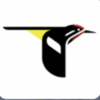
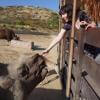







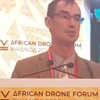










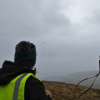


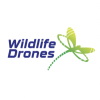





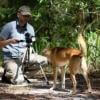








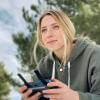

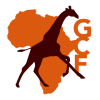











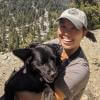
2 November 2023 9:20pm
I love the live-stream pin feature!